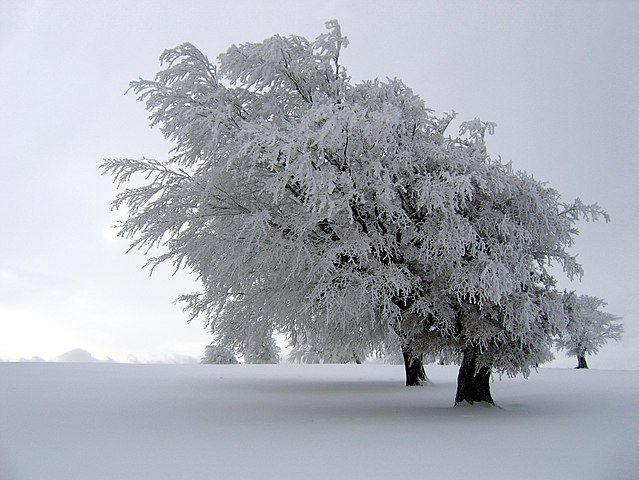
A Pair Of Poems To Read In Winter
On a cold winter’s evening, why not pull the curtains, settle into a cosy chair, and immerse yourself in some of the world’s best winter poetry? Here are a couple of suggestions to get you started:
Winter-time by Robert Louis Stevenson
This poem presents the experience of winter from a child’s point of view. The language is simple, as you’d expect of a child’s voice. It’s full of whimsical, childlike images: for example, the sun is a ‘frosty, fiery sleepy-head’, and the wind is ‘frosty pepper’. The child describes waking up on a dark morning, and dressing by candlelight. He or she is bemused by the experience of getting up whilst the stars are still in the sky. The child warms up a little by the fire, plays a solitary game, and is then wrapped up and sent outside to play in the freezing cold. The icy landscape is, to the child’s wondering eyes, ‘frosted like a wedding cake.’ The poem’s childlike imagery contains some gentle humour, but also draws attention to the child’s innocence and vulnerability in this harsh winter world. The sensory language helps us to experience the winter morning vividly, as if we’re right there with the child narrator.
Read it here
Stopping by Woods on a Snowy Evening by Robert Frost
The language and structure of Frost’s poem might seem simple, even childlike – but this simplicity is deceptive. This is an enthralling poem of mystical intensity, which seems to transcend time and place. On a dark evening, the speaker pauses, taking a moment to gaze silently at a wood that’s rapidly filling up with snow. The speaker is briefly mesmerised by the beauty of the wood, but then remembers his or her obligations, and somewhat reluctantly continues on the journey, reflecting: ‘I have promises to keep / And miles to go before I sleep.’ Frost said that, having been up all night working, he went outside to contemplate the sunrise, and at that moment the poem came to him almost fully formed. He likened it to a ‘hallucination’, and wrote it immediately, in ‘a few minutes without strain’. Who is the speaker, and where is he or she going? And what do the mysterious, woods represent: rest, freedom, beauty, danger…? Is this a poem about temptation away from the path into risky, deadly cold territory? Is it about taking time to perceive and appreciate beauty for a moment? About accepting, even embracing, responsibility? Or a desire for death? However you choose to interpret this poem, it’s magnificent and spellbinding – especially its repeated final line, which lingers in the memory, and which is surely one of the most quoted lines of poetry of all time.
Read it here
Other Winter Poems To Try
You might also like to try reading these similarly wintry poems: Spellbound by Emily Dickinson, available to read here, and The Darkling Thrush by Thomas Hardy, which you can find here.